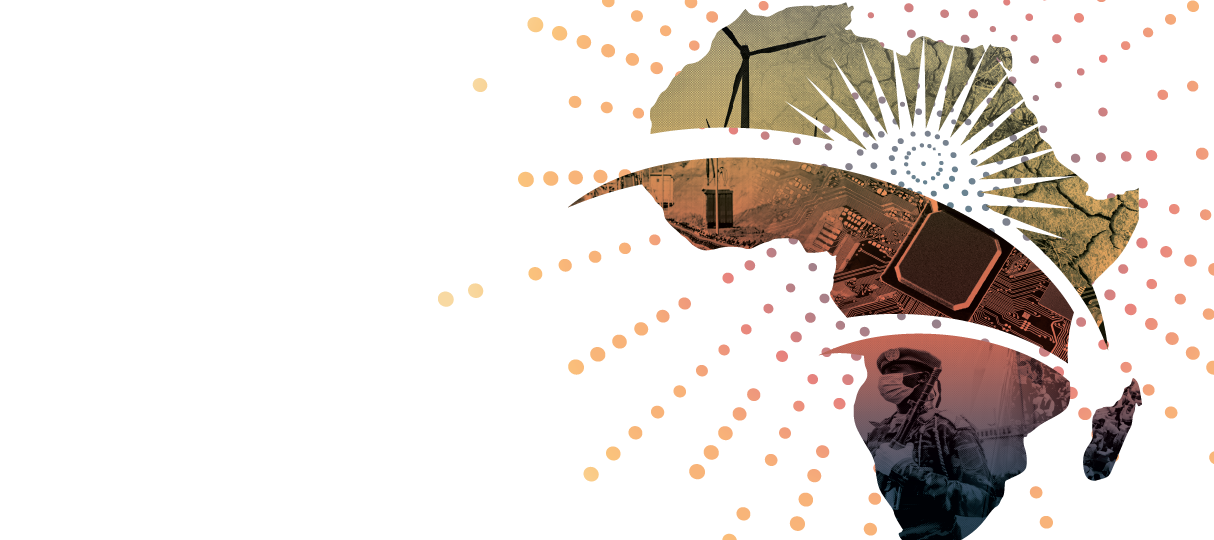A nation must think before it acts.
Access the Summer 2021 issue of Orbis here.
In his 2016 magnus opus Connectography, Parag Khanna—himself a contributor to the previous issue of Orbis—included a fascinating map, showing how the countries of the world broke down in terms of whether China or the United States was their leading trade partner. Not only was the Cold War “Iron Curtain” economically recreated in Europe—with the countries east of the Elbe tilting more towards China—a new dividing line was also manifest on the African continent, between the north and west that is still oriented toward the Atlantic basin, but with the rest of Africa “looking east.” Africa, like Eurasia, is emerging as one of the most critical pivot points in twenty-first century geopolitics and geo-economics, poised between the Euro-Atlantic world and the greater Indian Ocean basin. Its growing share of the world’s population and of its economic potential transforms its importance for U.S. policy, while its increased integration—as charted by Khanna—means that African-based challenges no longer remain contained to the continent, but utilize these nodes of connectivity to reach Europe, the Middle East, East Asia, and ultimately the Western Hemisphere itself.
A reassessment of the continent—and of its importance for U.S. foreign policy—is the rationale behind African affairs serving as the central organizing principle of the Summer 2021 issue of Orbis. Ambassador Charles Ray, who serves as the chair of the Africa Program at the Foreign Policy Research Institute, offers his perspective, grounded in his extensive diplomatic experience in the region, for a “fresh perspective” on the U.S. approach to the continent, while J. Peter Pham draws on both his academic and practitioner experience, including as special envoy for the Great Lakes Region and then as special envoy for the Sahel, to discuss the continent’s role in the geopolitics of the twenty-first century. Anchored by these two overarching expositions, the special Africa section includes contributions from Jessica Trisko Darden and Emily Estelle on the challenge of Islamist insurgencies; Kevin Limonier and Marlene Laruelle on Russia’s toolkit for extending its influence across the continent; Naunihal Singh on the limits of the U.S. counterterrorism approach for promoting its agenda; and Joseph Siegle and Candace Cook discussing ways to institutionalize democratic progress as a way to advance security.
Yet, Africa policy does not occur in a vacuum, nor is it divorced from larger trends. The former deputy national security advisor for strategy in the Trump administration, Nadia Schadlow, discusses her concerns for how the United States is poised to meet the challenges of the 2020s, while Maha Hosain Aziz draws on her academic and political risk analysis backgrounds to deliver predictions as to the immediate challenges the world will face as it enters the second year of the COVID-19 pandemic. And in a review of Derek Chollet’s The Middle Way: How Three Presidents Shaped America’s Role in the World, Eric Edelman discerns the lessons we might learn from how the Dwight Eisenhower, George H.W. Bush, and Barack Obama administrations approached U.S. national security.
Given my affiliation (as that of my predecessor as editor, Mackubin T. Owens) with the Naval War College, it may not be a complete surprise to see an homage to the importance of maritime issues. While the main focus of this issue is on Africa, there is a subsidiary focus on ongoing dilemmas in different maritime domains around the world. Katrin Bastian looks at the eastern Mediterranean and the European Union’s role; Michael Petersen and Rebecca Pincus focus on the importance of the Arctic in Russian military theory; while C.J. Jenner addresses contestation and confidence-building in the disputed waterways of the South China Sea. In the book review section, Jakub Grygiel considers Kevin McCranie’s assessment of Alfred Thayer Mahan and Julian Corbett as naval strategists.
Finally, Kori Schake and Michael Robinson take a sober look at the state of U.S. civil-military relations, especially in the aftermath of the 2020 election. And since you will be receiving this issue as the United States is completing the withdrawal of its military forces from Afghanistan, Dov Zakheim, who himself served as the Pentagon’s coordinator of civilian programs in Afghanistan, reviews Bing West’s new novel about the Afghanistan war as a way to understand U.S. involvement, expectations and disappointments.
We hope that this issue of Orbis provides both a deep dive into the geo-strategic importance of the African continent, as well as cogent analysis of timely problems in world affairs”




